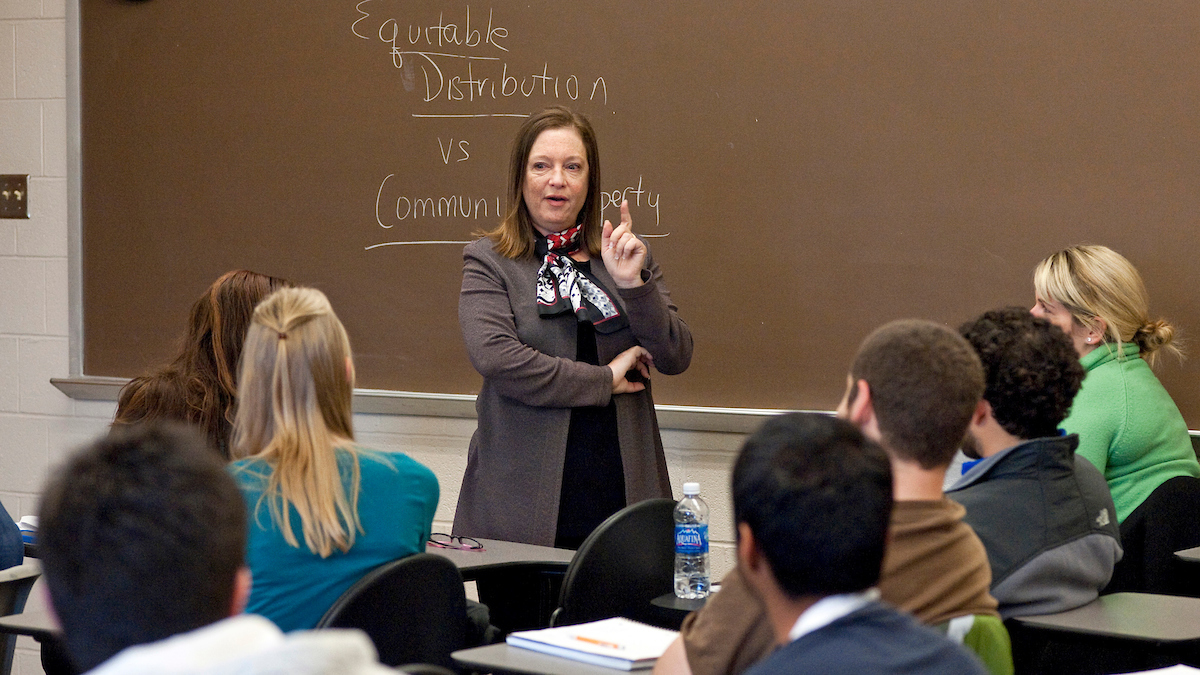
Economics Professor Susan Feigenbaum appeared on the Federal Reserve Bank of St. Louis’ “Women in Economics” podcast and talked about how to attract more women into the field, as Feigenbaum has done throughout her three decades at UMSL. (Photo by August Jennewein)
The field of economics remains one populated predominantly by men, but Professor Susan Feigenbaum has inspired legions of women to enter it since joining the faculty in the Department of Economics at the University of Missouri–St. Louis in 1988.
Finding female role models was even more difficult when she was breaking into economics in the 1970s, first as an undergraduate at Brandeis University and then as a doctoral student at the University of Wisconsin–Madison.
Feigenbaum, who is planning to retire at the end of the semester, is scheduled to speak at the commencement ceremony for UMSL graduates in the social sciences at 2 p.m. on May 12. But she also recently joined the Federal Reserve Bank of St. Louis’ “Women In Economics” podcast and talked to host and UMSL alumna Mary Suiter about her early experiences, why it’s important for women to study economics and what can be done to get more people from underrepresented groups into the field.
“Women tend to promote, on average, healthy, respectful dialogue, which is truly necessary to push the frontiers of economic knowledge,” Feigenbaum told Suiter. “I firmly believe that there is more ‘we’ and less ‘me’ among women, which leads to productive teamsmanship and the nurturing of each other and the next generation of economists, whether male or female.”
Women also make so many of the decisions – inside and outside their households – that shape both their own economic standing and society’s as a whole.
“How much education will a woman complete?” Feigenbaum said. “Will she work in the paid labor force or solely within the household? Will she decide to marry, and if so, when? Will she have children, and if so, when and how many? How much will she invest in the rest of her household, including her children. And finally, what resources will this woman be permitted to control given her legal and social environment?
“We know that it is ultimately investment in human capital that grows an economy, and women are central to such investment decisions.”
Feigenbaum discussed ways she has tried to make it easier for students to connect to economics.
“My approach has been deemed an inverted approach – going from the specific, the real-life example, not something that is a caricature of real life, and building from that up to the general principles,” she said. “I tell stories that resonate with my students about the choices we each make and why we often differ in the paths we take when presented with the same options.”
To listen to the podcast in its entirety, click here.














